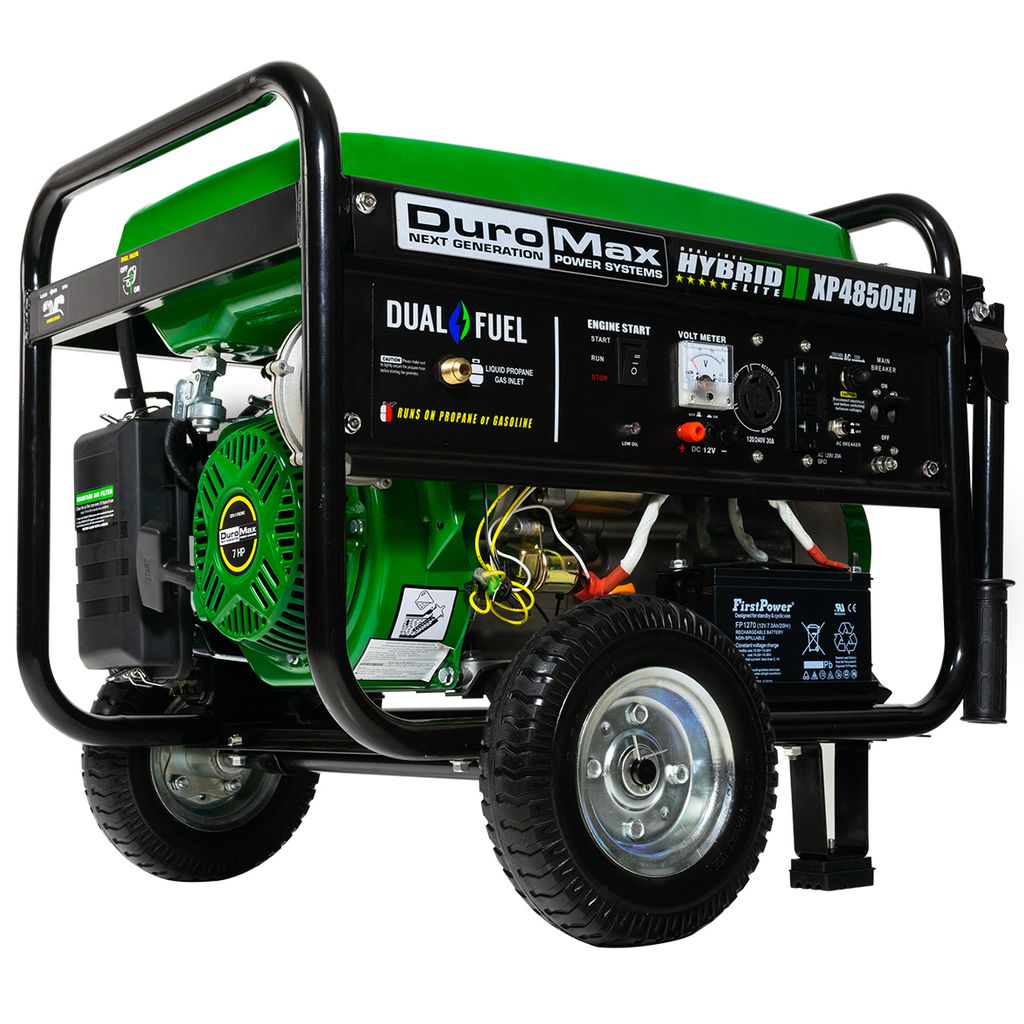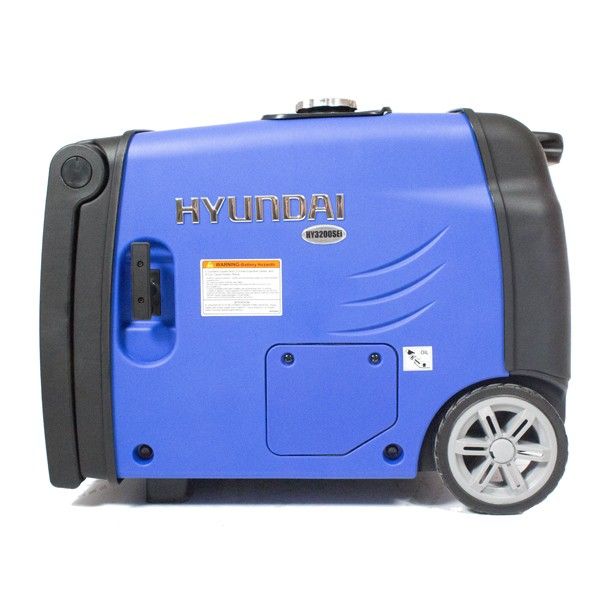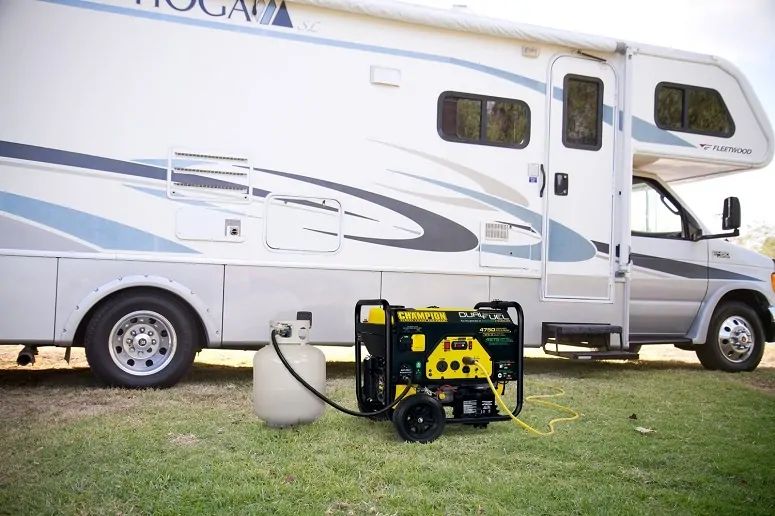A Special Type Of Generator: Rv
May 31, 2019 • 49 views
Have you ever wondered how do power stations provide electricity to thousands of cities? Do they run on giant batteries? Or do they have an arc reactor like the one shown in Marvel movies, where Iron man generates massive power using plasma in his arc reactor? Well, none of these is the actual case. Thanks to the great inventions of Michael Faraday, we have a super cool device known as a generator. A generator is a simple device which follows Faraday’s law of electromagnetic induction to convert the mechanical rotary motion into an electric current which is collected by special rings which are interfaced to carbon brushes from where it's taken out to run the appliances.

Nowadays the world is becoming more and more portable. From the era of wired telephones and computers to the era of wireless mobile phones and laptops, the demand for portability has never been less and RV generators play a big role in making the world more portable. These types of generators can be referred to as a home away from the home. The average amount of power generated by these generators is equivalent to three to five KW, which is enough to power air conditioners, refrigerators, microwaves, heavy machinery tools etc.
The freedom and flexibility RV generators provide, allows the users to move across the world without compromising with their work schedule. Setting up construction work, where heavy machinery is a must requirement or a campfire outing, no matter whatever be the purpose, RV generators always got your back as a perfect companion giving you power wherever you are. Further, if you are organizing functions or parties and running short of power. Don’t worry! RV generators got your back.
Unlike solar cells and portable batteries, RV generators are easy to move and hence you can keep it safe from dust and rain which otherwise will spoil out your other devices. Portable batteries tend to lose functionality with time and can be dangerous while operating for a long period of times, with RV generators you don’t have to face such problems, their capability to stand off the grid and their safety concerns adds up to another reason why you should have one.
Portability and flexibility also allow your generator to park anywhere in comfort, nowadays new RV generators come up with the wheels for proper locking system which allows you to fix its position based on the application you are looking for.
No issues and worries of dead batteries as RV generator allows to power heavy-duty electrical appliances with the minimal chances of your power system destruction. System overloading probability is also reduced. House batteries can easily be recharged hence ensuring smoke and security alarms are always active.

The post cost savings with these generators is something we should not miss out while sailing through the ocean of benefits, though installation and one time investment may seem to be very high, but based on the post requirements, the RV generators are pretty much best replacement for lots of other devices like portable batteries, extensions (for gardens, ex: grass cutting, cleaning), maintenance of these devices etc.
Based on the type of fuel and the purpose of utility, one can decide exactly which kind of fuel will suit the best. For example an industrial operations may look for cost-effective fuel with high calorific value to obtain maximum efficiency, whereas also reducing smoke and emissions, since it is going to be a large scale operation and hence to avoid polluting the air, whereas a domestic purpose usage or occasional utility will focus more on high calorific value, less noisy operation etc. These features provide with the freedom to choose the accurate fuel source for RV generators and hence optimize cost, time and efficiency of operation as well.
Since now you got a good idea of how exactly an RV generator works and how can they be useful, so let’s move on and discuss its types. Though there can be several classifications for these giant power generating machines for example based on noise levels, fuel efficiency, the power generated etc. but the most common and relevant classification is based on the type of fuel they consume to produce power.
As the name suggests, a diesel based RV generator is one which runs on diesel. Diesel generally being costlier than gasoline or propane adds few more bucks to overall cost expenditure. Further, the equipment itself is slightly more expensive than the other two. Also, diesel-burning causes an unpleasant smell.
Though there are various limitations to this type of RV generators, they can be used to generate high power outputs as compared to the other two fuels. Not just this, the fuel is cleaner, less pollutant and burns without causing much emissions and safer to operate as well.
Gasoline based RV generators are another category in families of RV generators, whether it be the fuel which needs to be fed into the machine or the machine itself the gasoline generators are most economical ones. Their ease of availability as they are very commonly found throughout the world even adds them more value.

Since gasoline is one of the impure fuels contains compositions of various types of mixtures, as the mixture has many impurities hence they burn a range of temperatures creating a lot of noise and crackling. Many unburnt particles are left within the furnace which may shorten the overall life of the generator and if left uncleaned can even create a blockage within the generator.
Finally, a propane-based RV generator consumes propane as fuel and undergoes clean burning which is healthy for the environment as well. Though clean and efficient burning also adds to the shelf life of the product in turn, fuel is consumed at a very high rate which makes it economically less feasible. Refill is also a big concern as liquid propane aren’t easily available. The overall power output of this fuel is way lesser than the other two and generally is not recommended for heavy purpose applications.
Not necessarily, an RV generator should always be running from one fuel and they also come in hybrid combinations of two fuels.
As we discussed the major classification of the RV generators are based on fuel, whereas they can also be classified based on power generation method, they can be known as an alternator which generates alternating current where RPM must be constant and hence they cause a lot of vibrations while operation.

On the other hand, an inverter operates by producing a direct current which drives an inverter which in turn converts and provides with 120V standard AC current. Though two-step conversion may seem inefficient but takes over when considered all other factors.
In total we can conclude that RV generators are advancements in everyday technologies which can be highly advantageous in today’s world, whether it be a beautiful road trip with the family or heavy machinery work or a beautiful occasion like a birthday party or a marriage far from your home, you have got a reliable and perfect companion for you to carry with anywhere you go.
Depending upon the money in your hand and the power requirements, you can choose a perfectly suitable RV generator to comply for all your needs without worrying about safety!
